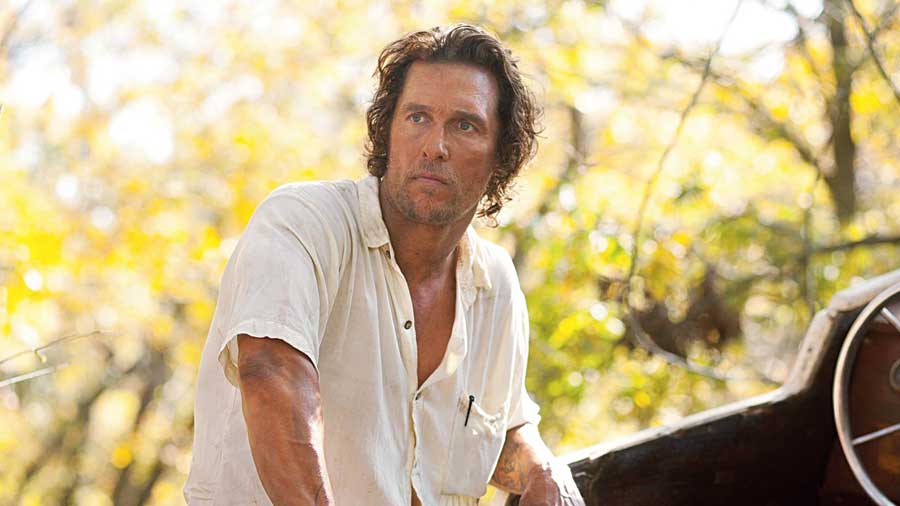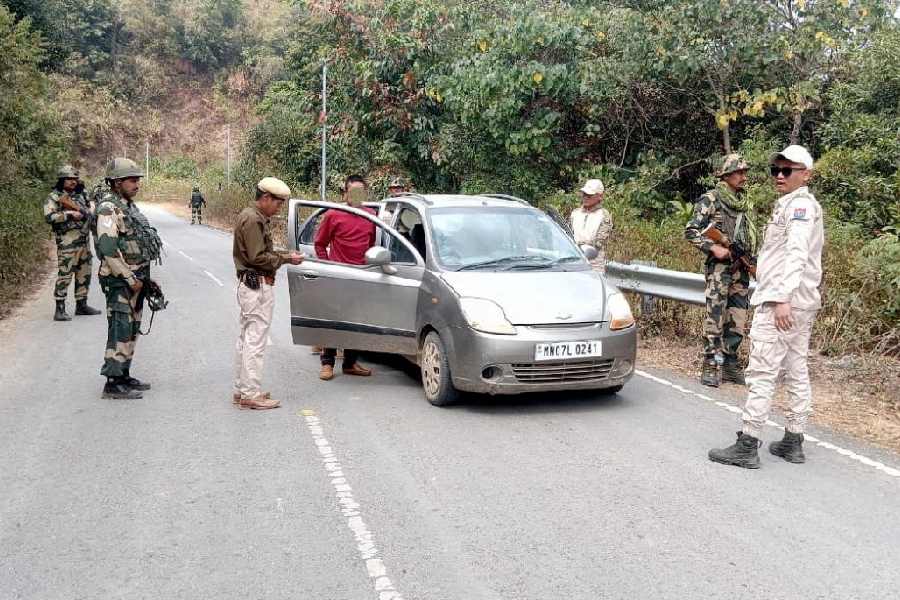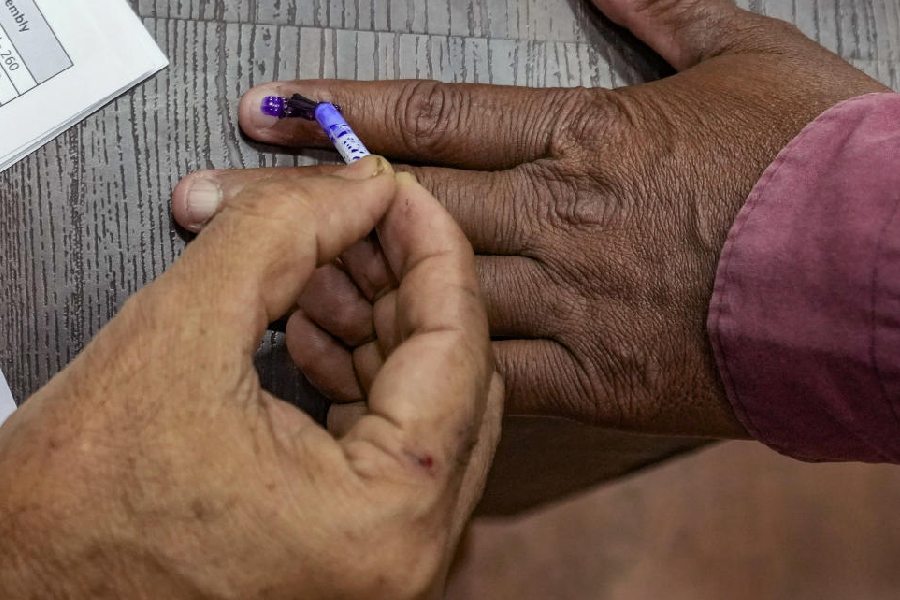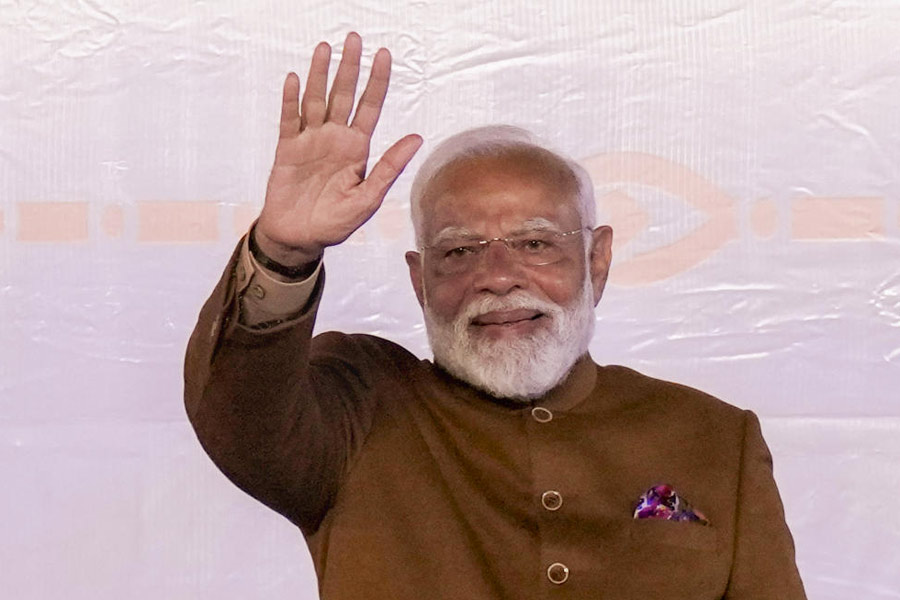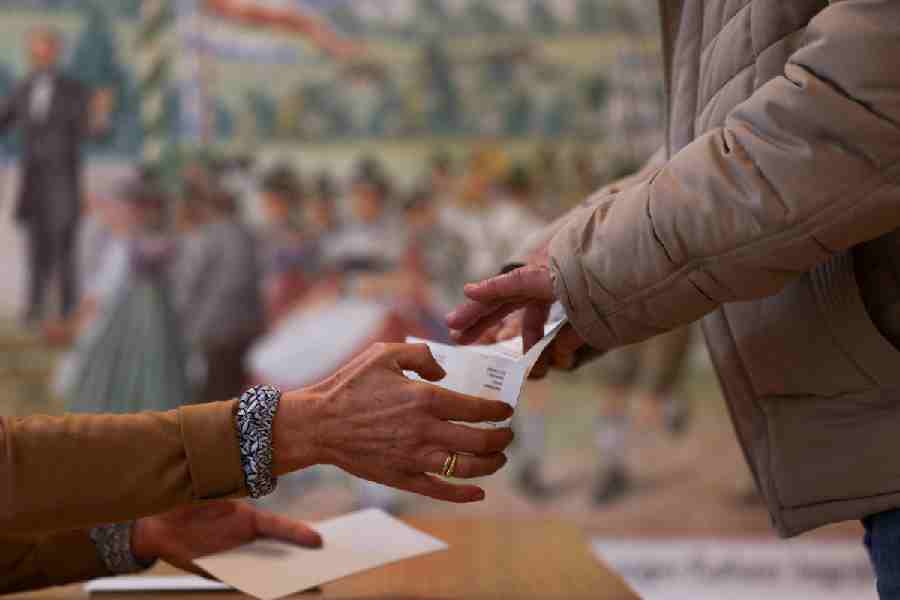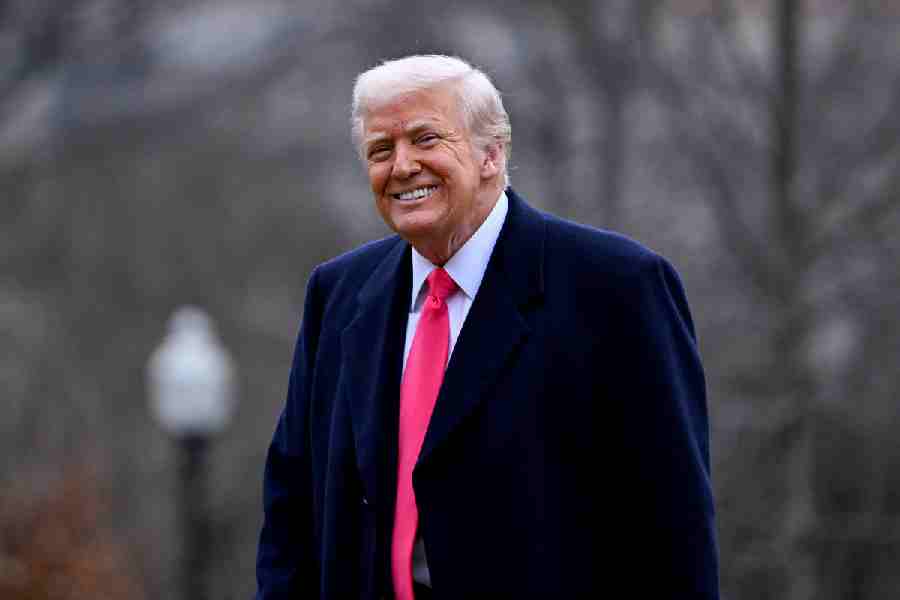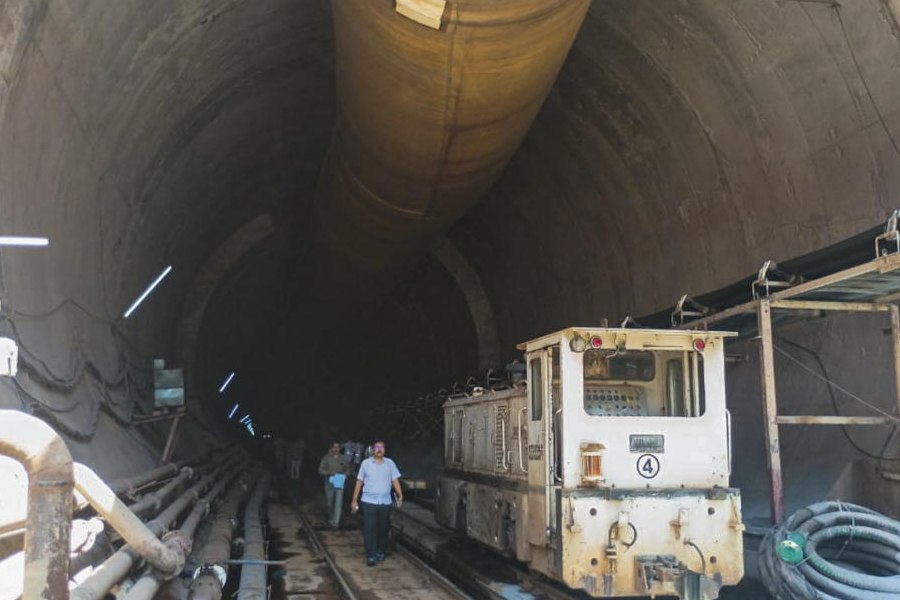Would it surprise you to learn that more than 30 years ago, before he’d even sauntered across the screen in Dazed and Confused, Matthew McConaughey wrote a poem in which he vowed he’d someday become an author?
As one of its lopsided verses declared:
I think I’ll write a book.
A word about my life.
I wonder who would give a damn
About the pleasures and the strife?
This was in 1989, when he didn’t know all the twists and turns that awaited him — the acting awards he’d win, the wife and children he’d have, the bracing dramas and banal rom-coms he’d make. But he was certain he would live a life worth chronicling.
Now that poem, rendered in its creator’s arcane handwriting, appears at the start of his autobiography, Greenlights, which Crown has published.
The book offers a shotgun seat to all the l-i-v-i-n that McConaughey has accumulated, from his upbringing in a tumultuous Texas family to his ascent as the ruggedly serene star of Magic Mike, True Detective and Dallas Buyers Club.
McConaughey, who turns 51 on November 4, enjoys spinning some of these personal yarns, not necessarily because they sound cool but because he believes they reveal certain universal and teachable truths.
To that end, Greenlights is filled with homespun wisdom that McConaughey has wrung from his toils, travels and that time he got arrested while playing bongos in the nude. He has fortified his remembrances with the coinages and maxims he dutifully recorded in decades’ worth of personal journals and which continue to spill naturally from his mouth.
It is a book that is constantly evaluating itself and its reasons for being, much like its author. He acknowledges that he entered into the project both eagerly and warily, looking to use his celebrity for the opportunity to tell his story in his own idiosyncratic way.
“I get what equity I bring as Matthew McConaughey, however you see me,” he said in a Zoom conversation last month. He spoke from a den in his home in Austin, Texas, wearing his hair swept back and a flannel shirt that was only partly buttoned up as he peered into his webcam through a pair of horn-rimmed eyeglasses.
“If it’s a straight memoir” — he stressed the second syllable with an unexpected French flair — “as a publisher you could sell some books”. What he hoped to produce, he said, was one where “the words on the page are still worthy to share if they were signed by anonymous, but at the same time be a book that only McConaughey could’ve wrote”.
Look beyond the boldface name
Like the bestubbled dude you have seen whooping it up at WWE matches and sermonising in luxury car commercials, McConaughey is alternately uninhibited and self-serious. He is comfortable referring to himself in the third person and dismisses any suggestion that he has stumbled backward into his professional success.
As he told me, he knows there are people who think, “Gosh dang, McConaughey just eases right into everything — the guy doesn’t seem to have any bumps, doesn’t get hit crossing the road.” He said he wrote Greenlights partly as a corrective to this perception, to show how much effort it has taken to get where he is.
But McConaughey wants readers to look beyond the boldface name on its cover and focus on its fundamental message. No one can escape hardship, he said, but he can share the lessons “that helped me navigate the hard stuff — like I say, ‘get relative with the inevitable’ — sooner and in the best way possible for myself”.
Codifying his beliefs and putting them down on paper was one test. The next challenge comes as McConaughey releases Greenlights into a world that feels increasingly unsettled and dismissive of values systems — one where, like millions of Americans, he and his family have spent the past several months spent “trying to outrun the ol’ Covid,” as he put it.
“I’m still continuously testing and updating my philosophies, practically daily,” he said. “And I can do better at a lot of them.”
As McConaughey tells the story, his youth was dominated by his father, Jim, a former college and professional football player turned pipe salesman who was married three times to and twice divorced from the actor’s mother, Kay. The book’s first chapter dramatises a scene from 1974 where McConaughey watched the couple fight ferociously — his mother having broken his father’s nose with a telephone while he brandished a ketchup bottle — before his parents had sex on the kitchen floor.
It sounds brutal and, as McConaughey told me, “This is the reality, but there’s humanity in that reality.” Jim was tough on his sons, too, but, McConaughey, who is the youngest of three brothers, said, “I wouldn’t give back one ass-whupping I got for the values that are ingrained in me.” When he reflects on his parents, McConaughey said, “The love was real. The passion was real.” (A few days after McConaughey started filming Dazed and Confused, Jim died of a heart attack while making love to Kay.)
Kay McConaughey, now 88, said in an email that as she raised Matthew, she did not necessarily expect him to become an artiste. “In fact, that subject was never brought up,” she said. “I thought he was going to be a lawyer.”
Even so, she said that she often observed Matthew “jotting things down on small pieces of paper about what someone had said or what he thought about what was being said or a way he saw life.”
Having read Greenlights and seen how Matthew depicted her relationship with Jim, Kay McConaughey said, “It was a rocky and passionate love affair we had, but I do wish Matthew would have told more of the stories about me and his dad’s love, affection and commitment to each other.”
Still, she said, she regarded her youngest son as a fundamentally forthright person. “What has remained consistent in Matthew’s life is his honesty and being true to himself, knowing who he was and owning it.”
Always playing the long game
Matthew McConaughey recounts how he landed his breakthrough role as the likable sleaze Wooderson in Dazed and Confused by tracking down the film’s casting director, Don Phillips, in an Austin bar and charming his way into an audition. A few years later, the not-yet-bankable actor mounted a successful campaign to persuade the director Joel Schumacher to cast him in a leading role in his adaptation of A Time to Kill.
To McConaughey, stories like these illustrate how he is not content to merely let life happen to him. “It’s always been obvious to me that I do not have a laissez-faire attitude,” he said. “It’s a state of being that I work at, continuously, daily, and I break a sweat to get it.”
Longtime colleagues say it’s even more than that: Despite the agreeably dishevelled image that McConaughey projects, they see him as someone who is perpetually preparing himself for opportunities and actively steering himself toward them.
As his friend Richard Linklater, who directed him in several films including Dazed and Confused, explained to me, “People underestimate the utter intentionality of what Matthew’s done. He’s really good at going from A to B to C. He’s got a plan and he’s just brave enough and brazen enough to execute it.”
The point of the Dazed and Confused audition story isn’t that McConaughey simply happened to be in the right place at the right time, Linklater said: “He wasn’t discovered in a bar — he went over to the guy who he heard was casting it. Matthew’s always playing the long game.”
In Greenlights, McConaughey tells the back stories of some of his best-known roles, but he does not take a film-by-film inventory of his entire career. Nor does he share any particularly salacious details from his personal life when he was still a single man, beyond a paragraph in which he writes: “I wore the leathers. I rode the Thunderbird. I took a lot of showers in the daylight hours, rarely alone. I partook.”
McConaughey told me that while such scenes are generally staples of celebrity tell-alls, he felt that to include them “would be in bad taste and bad manners — that’s why bedrooms have doors on ’em”.
However, he does unhesitatingly share two different stories in which he awakens from wet dreams — you read that right — where he saw himself “floating downstream on my back in the Amazon River” while surrounded by jungle life and “African tribesmen lined up shoulder to shoulder on the ridge to the left of me”. He interpreted these visions as subconscious exhortations to travel to Peru, where he immersed himself in the Amazon, and to Mali, where he sparred with a local wrestling champion.
That approach to existence has sent McConaughey hunting for what he calls “greenlights” — the traffic signals that mean go, which he prefers to spell as a single word and which he believes take skill and acumen to identify.
To conclude that life is all about luck, he said, is to surrender to fatalism: “Quit letting yourself off the hook, McConaughey. If that’s true, then run every red light. You’ve got your hands on the wheel. You’re making choices. They matter.”
McConaughey said he has no interest in being anyone’s spiritual guru and did not approach Greenlights as a work of self-help. Friends say that yes, this is really how he talks and that his book is one more way that he is trying to express himself.
“It’s his way of wanting to be heard on another level,” Linklater said. “It’s another level of communication that you can’t get in a role.”
Linklater explained that actors like McConaughey are vulnerable in their work: “They don’t have total control,” he said. “Even the most powerful actors — Denzel Washington, Daniel Day-Lewis — are still at the mercy of the parts they’re being offered. Actors need these other outlets.”
Turning a retrospective lens on himself
Sometimes McConaughey dispenses wisdom in miniature pearls, like the beloved bumper stickers he has reproduced throughout the book that sport pithy phrases like “Educate before you indict,” “I am good at what I love, I don’t love all that I’m good at” and “If you’re high enough, the sun’s always shining.”
And sometimes he expounds at greater length, like when I asked him how he appears to stay out of America’s toxic culture wars and cultivates liberal and conservative fans alike.
“I’m trying to keep in with it and not out of it,” McConaughey replied. “For those people who say there’s nothing but yellow lines and dead armadillos in the middle of the highway, I say to you this: the armadillos are just fine. Because the right and the left are so far out, they’re not even on the asphalt anymore. They’re in the frickin’ desert.”
He gave a raspy laugh and added, “Man, I’ll meet you in the middle.”
Getting Greenlights onto the page did not happen quite so swiftly. Crown had its eye on McConaughey as far back as 2015, when the actor went viral with a commencement speech he gave at the University of Houston, structured around his aphorisms (“Don’t leave crumbs”; “Dissect your successes”; “A roof is a man-made thing”).
A proposal that McConaughey later circulated to several publishing houses “had less story and more of the lessons and philosophy in it,” said Gillian Blake, senior vice-president and editor in chief of Crown. But in further conversations with him, Blake said that McConaughey did not need much encouragement to turn a retrospective lens on himself.
“We had a few long in-person meetings where you’d ask him a question and he’d say, ‘Oh, yeah, I got a story about that,’” she said. “And then he went back home and wrote it all down.”
McConaughey said that he had already prepared for the writing process by reviewing the diaries and journals he has kept since he was a teenager. He said he did not work with a co-author on Greenlights but got some needed motivation from his wife, Camila Alves McConaughey.
“All of a sudden, my wife was like, ‘Get in the truck, load up your food, water and tequila, and don’t come back until you’ve got something,’” he recalled. “So, bam, I called a friend with a cabin and hit the desert.”
Since then, though, McConaughey, his wife and their three children have been living a sequestered life during what the actor calls “Covid times”. McConaughey said he is a cooperative mask-wearer and social-distancer, but he could not help worrying about reopened schools and sports events leading to a rise of infections. “We may see this completely backfire,” he said.
It is both a propitious and a terrible time to be plugging a book about how the experiences of a Hollywood movie star can improve your life. And while McConaughey has reorganised himself for several weeks’ worth of virtual promotion, his greater concerns are maintaining his family’s welfare and keeping his own head on straight.
In some moments he tried to alleviate his existential dread with humour. “Everyone’s in a bit of a pickle, and it’s not a little gherkin,” he said. “It’s one of those big two-pounders you get at a roadside truck stop.”
Then he would abruptly describe the situation in starker terms: “We’re going back to our most barbaric selves,” he said.
But — to use an adage that McConaughey might endorse — he tried to light a candle in the darkness and find some optimism at an otherwise dire time. “Could this actually be a banner year, where things got started?” he asked. “Where we got cleansed? A little evolution would be nice.”
The New York Times News Service

